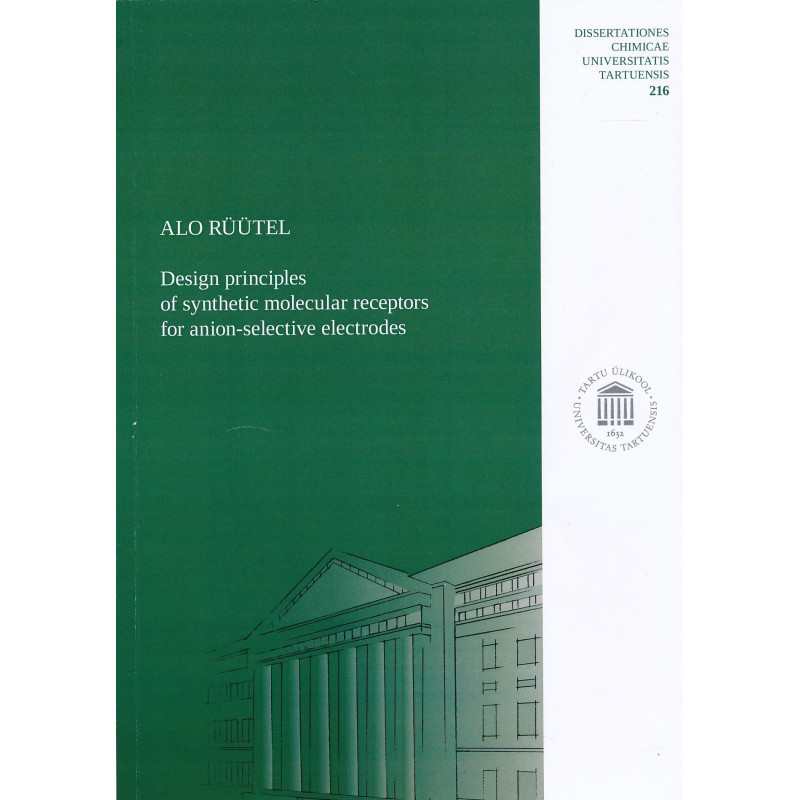



Tartu : University of Tartu Press, 2022
108 p. : ill. ; 25 cm
ISBN: 9789916270684
Dissertationes chimicae Universitatis Tartuensis ; 216
Softcover new book.
Doctoral theses defended at the University of Tartu, summary in Estonian
Commercially available portative sensor systems for ion recognition are available for only a few select applications. Some examples include Na+/K+ electrodes, pH meters and NO3- electrodes. Anion-selective electrodes are required in several fields, such as medicine, food industry, agriculture etc. One desired class of analytes are ions of carboxylic acids, i.e., carboxylates. One strategy for the selective recognition of these anions is to use molecular receptors in ion-selective electrodes. In supramolecular chemistry, which deals with designing new receptor molecules, mountains of receptor candidates are available for this possible application. However, these compounds do not reach the electrochemical research field, where molecular receptors could be used as input for sensor prototypes. This dissertation aims to connect these two research fields and demonstrate the challenges of creating new ion-selective electrodes for carboxylate sensing. This process is accompanied by several scientific challenges at the fundamental level of supramolecular chemistry. To address these problems, influencing factors are explored, such as improving binding, lipophilicity, biphasic binding environments etc.